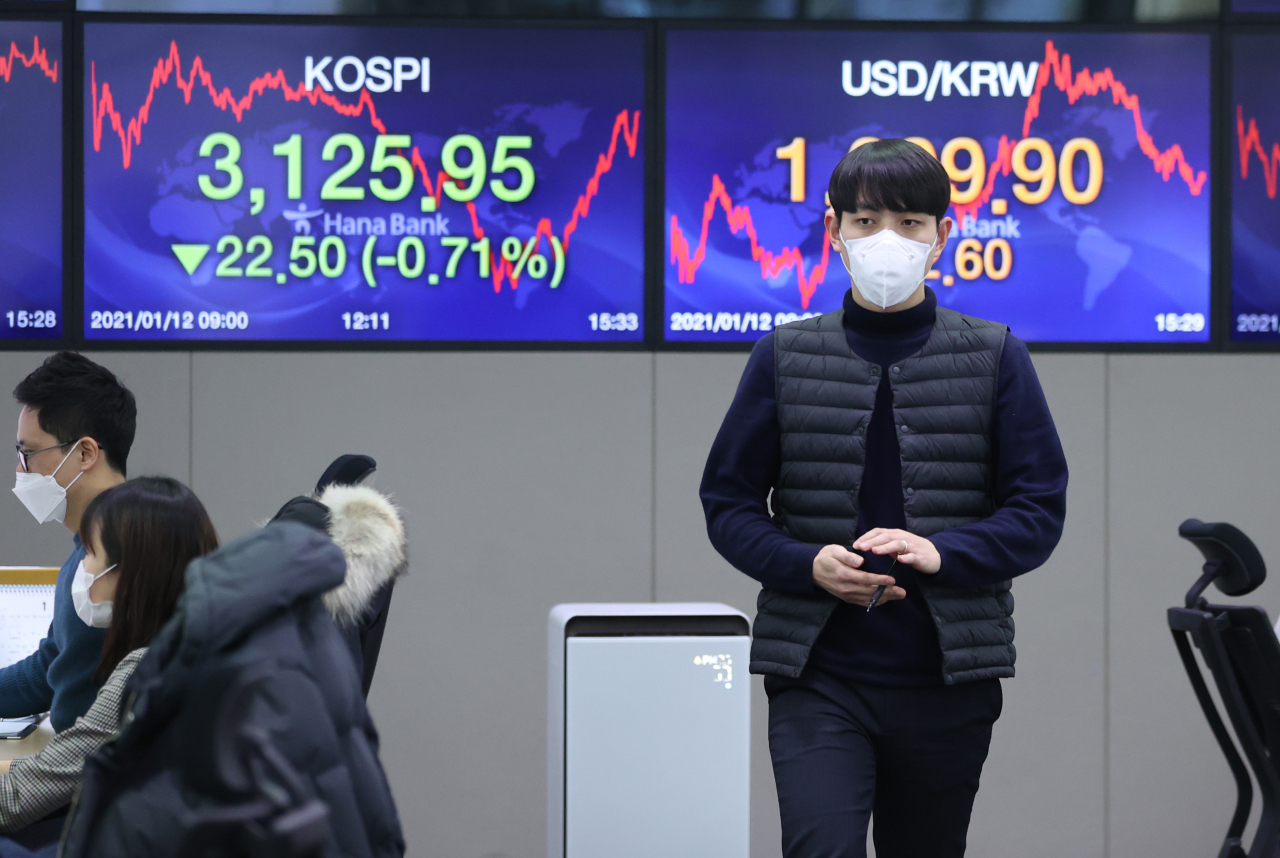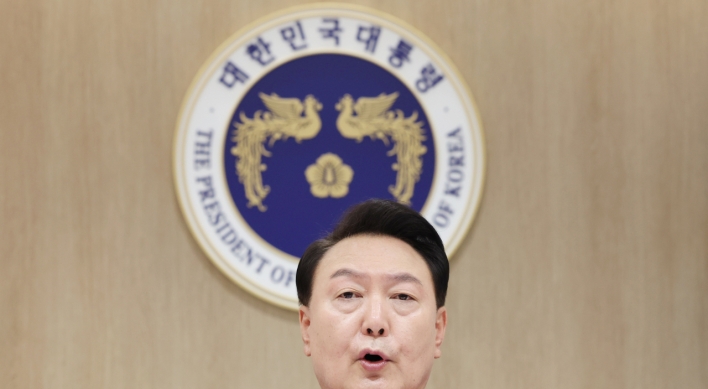[Market Close-up] Kospi’s dizzy new heights: Asset bubble or market reality?
Some analysts optimistic about upward direction of South Korea's main bourse, but others warn of its speed
By Park Ga-youngPublished : Jan. 12, 2021 - 17:14
As South Korea’s main bourse continues its upward movement backed by an unprecedented buying spree by individual investors, some analysts said Tuesday warned that it might be overheating.
“The level of return on equity calls for a cautious approach at the moment. You could say the market is heading upward for many reasons, but it’s too fast,” said Kim Han-jin, a senior analyst at KTB Investment and Securities.
ROE is the rate of return on the capital provided by the company’s shareholders. The expected ROE for Kospi this year is 7.28 percent and 23.10 percent for the S&P 500, according to Bloomberg. It means that local stock investors could profit less than investors in the US market.
Other indicators also send investors signals to stay cautious, suggesting that the market might be volatile and overvalued.
The Buffett Indicator, the ratio of total stock market valuation to GDP, also shows a possible overvaluation.
Popularized by investor Warren Buffett, it is used to gauge whether a stock market is over- or undervalued. The Buffett Indicator for the local stock markets rose to 124.5 percent at the end of 2020, compared to 83.8 percent, which indicated an undervalued market a year ago. A figure above 100 percent suggests the market is overvalued.
Forward price-to-earnings ratios, a gauge of a company’s likely earnings per share for the next 12 months, were also up, reaching 14 at the end of 2020, well above the long-term average of 10.
VKOSPI, the volatility index of Kospi 200, stood at 35.65, soaring 22.17 percent from the previous trading day on Monday, the highest since June 18 when the index marked 37.30. The VKOSPI, which offers insight into how much volatility professional investors think the Kospi 200 index will experience over the next 30 days. It is called “fear gauge” because it reflects price volatility in markets.
“The level of return on equity calls for a cautious approach at the moment. You could say the market is heading upward for many reasons, but it’s too fast,” said Kim Han-jin, a senior analyst at KTB Investment and Securities.
ROE is the rate of return on the capital provided by the company’s shareholders. The expected ROE for Kospi this year is 7.28 percent and 23.10 percent for the S&P 500, according to Bloomberg. It means that local stock investors could profit less than investors in the US market.
Other indicators also send investors signals to stay cautious, suggesting that the market might be volatile and overvalued.
The Buffett Indicator, the ratio of total stock market valuation to GDP, also shows a possible overvaluation.
Popularized by investor Warren Buffett, it is used to gauge whether a stock market is over- or undervalued. The Buffett Indicator for the local stock markets rose to 124.5 percent at the end of 2020, compared to 83.8 percent, which indicated an undervalued market a year ago. A figure above 100 percent suggests the market is overvalued.
Forward price-to-earnings ratios, a gauge of a company’s likely earnings per share for the next 12 months, were also up, reaching 14 at the end of 2020, well above the long-term average of 10.
VKOSPI, the volatility index of Kospi 200, stood at 35.65, soaring 22.17 percent from the previous trading day on Monday, the highest since June 18 when the index marked 37.30. The VKOSPI, which offers insight into how much volatility professional investors think the Kospi 200 index will experience over the next 30 days. It is called “fear gauge” because it reflects price volatility in markets.

However, optimistic analysts say the market will see a further increase, citing expectations for the economy’s sound recovery. The force of small investors armed with abundant funds in hand might be stronger than expected, they say.
“The market we see now is unprecedented because it is being pushed up continuously by individual investors,” said Yoon Ji-ho, the head of E-Best Research Institute. Small investors, locally known as “ant warriors,” stacked up 1 trillion won ($909 million) within the first 10 minutes of the market opening on Monday. Their buying spree pushed the Kospi Composite Index above 3,200 points in morning trade Monday, just five days after it exceeded the 3,000-point milestone. By the close, small investors bought a net of 4.5 trillion won.
In addition, the Composite Leading Indicators Index by the Organization for Economic Cooperation and Development points to South Korea’s economic expansion in the coming months.
The index for the country stood at 101.2 in November, recording eight consecutive months of on-month growth. The CLI is a measure of how an economy is likely to fare four to six months ahead, based on a qualitative measure of indicators such as business tendency surveys and consumer opinion survey.
E-Best’s Yoon pointed out that even though individual investors have emerged as a strong force in the market, subduing the influence of institutional and foreign investors, one should be watchful for movements by the latter. In 2020, when individuals bought 64 trillion won in local stock markets, foreign investors sold a net 24.7 trillion won, recording the biggest net sell in history, according to the Financial Supervisory Service on Tuesday.
“Foreign investors -- especially institutional investors -- see numbers: The profitability of companies. The reason they are selling is probably they think the valuation is high,” Yoon added.
Concerns persist as foreign investors still hold considerable power in the market.
As of end-2020, foreign investors held a total of 764.3 trillion won in the domestic stock markets, accounting for 31.4 percent of the total market cap, data from Korea Exchange, the country’s stock market operator, showed.
Pessimists also suggest the possibility of the purchasing power of individual investors to be curbed as authorities signal moves to tighten regulations on loans.
Financial authorities on Monday requested banks carefully manage their capacity on credit and housing lending as the amount of borrowed money surged on the first week of the new year. As financial institutions eased limitation on credit lending earlier this month, the amount of fresh money borrowed on individual credit increased by 453.3 billion won to 134.10 trillion won.
The country’s stock markets retreated for a second day on Tuesday despite continued buying streak by retail investors. The benchmark Kospi declined 0.71 percent or 22.50 points to close at 3,125.95 points while secondary Kosdaq inched down 0.30 percent to 973.72 points.
(gypark@heraldcorp.com)




















